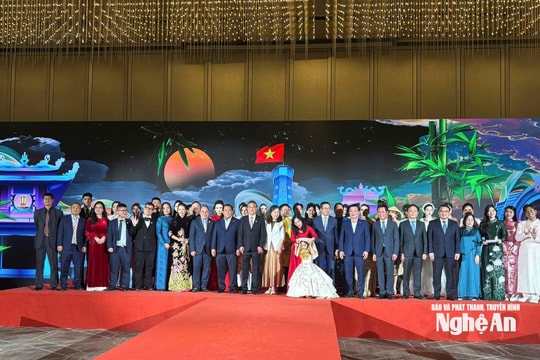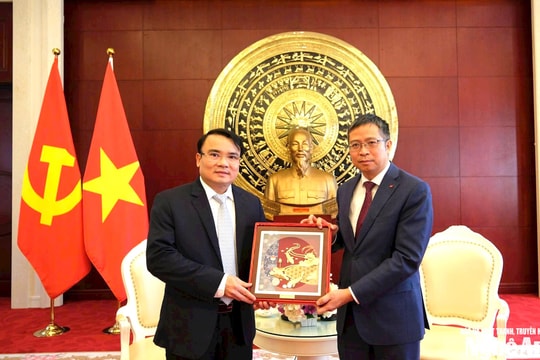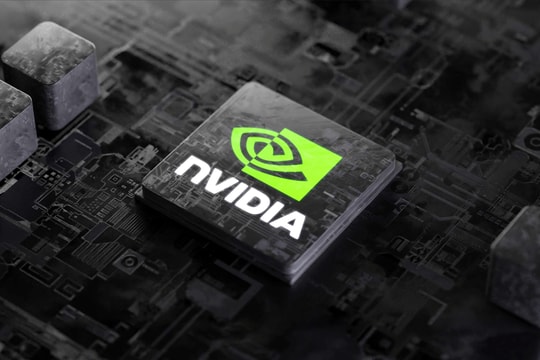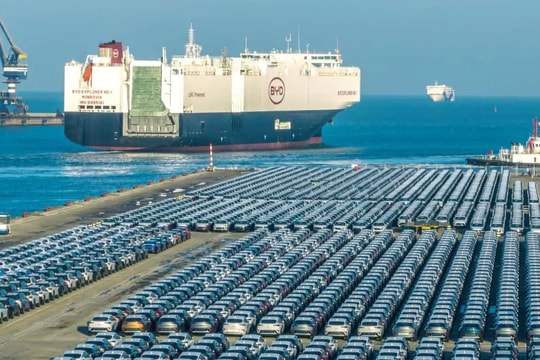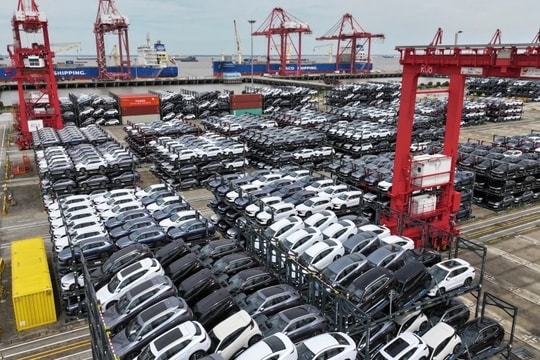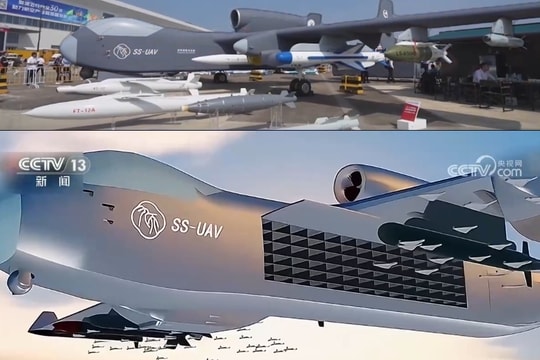Hidden messages to China after Abe-Putin meeting
(Baonghean) - Japanese Prime Minister Shinzo Abe's visit to Russia and meeting with President Putin in Sochi sent a hidden message to China that its ally is still capable of cooperating with Japan, in line with the current world trend.
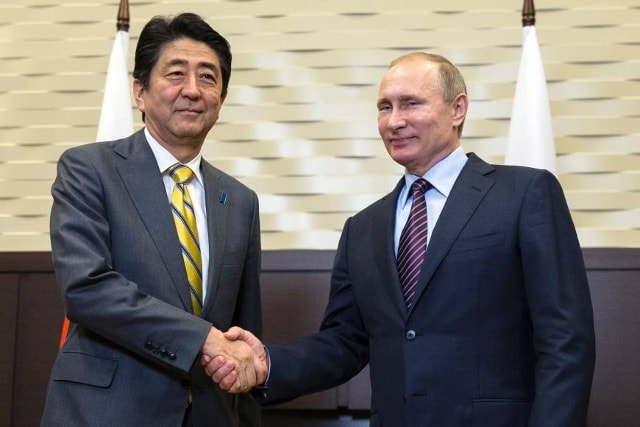 |
| Russian President welcomes Japanese Prime Minister in Sochi city on May 6. Photo: AFP. |
After Russia annexed Crimea in 2014, the US called on its European allies and Japan to impose an embargo on the country. Therefore, when dealing with Russia or President Putin, these countries are very careful, probing the US's reaction to avoid offending their allies.
Japan is no exception. Faced with China's rising power, the cherry blossom country must rely on the US nuclear security umbrella to protect its national security.
In the context of the Russia-US confrontation, before the Summit of the 7 developed industrial countries (G7) taking place in Hiroshima city, Japan at the end of this month, Mr. Abe's decision to meet Mr. Putin has obviously become a topic of discussion in the world.
Will the above event affect US-Japan relations? It should be noted that during his three years in office, the Japanese Prime Minister met with the Russian President more often than with the US President, showing that establishing relations with Moscow is an extremely important issue for Tokyo. And Japan should not “abandon” its relationship with Russia because of its alliance with the US, because the wisest powers will diversify their relations in the current context of international interdependence.
Of course, Mr. Abe's visit to Mr. Putin on May 6th made the US unhappy. But they also reacted very cautiously, and the US even publicly showed support for this trip. But the US also knows that the Japan-Russia relationship has certain limits. Even though they have met Putin many times, their bilateral relationship still has many disagreements that are difficult to resolve. Foreseeing the limits that Japan will find difficult to overcome when working with Russia has somewhat reassured the US.
On the other hand, improved relations between Japan and Russia also benefit the US, because it will have a hidden impact on China, breaking Moscow's alliance with Beijing, and at the same time helping Japan send a message that it is not only an ally of the US but also considers Russia a friend. This situation forces China to reconsider its actions in the East Sea in particular and the Asia-Pacific region in general.
During his recent trip, Mr. Abe certainly informed European countries such as Germany, France, etc. about the content of the discussion with Russia in Sochi. However, it is clear that Mr. Abe still understands that the territorial dispute is a difficult topic to resolve in this meeting.
As for the economy, Japan and Russia have a wide space for cooperation in gas, liquefied gas, finance, technology, etc. And who knows, the agenda between the two leaders might mention the possibility of cooperation and security, although not mentioned, this scenario also makes China worried.
During this trip, Japan also asked Russia to reduce the transfer of modern weapons and equipment to China because that would tilt the military balance in Northeast Asia, causing disadvantages for Tokyo and other countries.
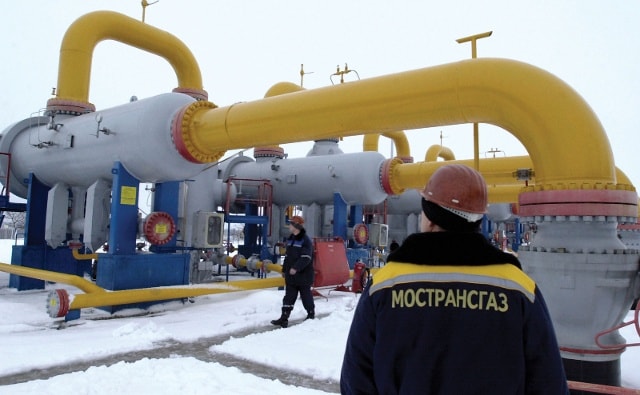 |
| Russia and Japan still have much room for economic cooperation, especially in the gas sector. Photo: Internet. |
The public also questioned the real reason why Russia happily welcomed the Japanese Prime Minister. Over the past two years, it can be said that the embargo has had a significant impact on the Russian economy. Now, the US ally, the world's third largest economy, is visiting Russia, showing that Russia is not alone.
By opening the door to cooperation with Tokyo, Mr. Putin's underlying purpose is to send a political and diplomatic message that Russia cannot be isolated. Secondly, Russia needs capital and technology to serve economic development, awakening dormant potentials, and Japan is a country with full conditions to support Russia, helping Moscow diversify its partners to exploit the Far East. Obviously, Mr. Putin wants to join hands with Japan to reduce pressure and dependence on ally China in both economic and security terms.
For its part, China is very wise and secretive. Some official Chinese news sites only reported Japan's visit to Russia as usual. But in fact, it must be said that Beijing does not want Moscow to join hands with Tokyo, because then its pressure on Russia and Japan will be reduced.
Regarding the development trend of Russia-Japan relations in the coming time, as mentioned above, in terms of economy, Russia needs Japan and vice versa, Japan also openly says that they need Russia. In terms of politics, there is still a problem about the Northern/Southern Kuril Territories between the two sides. But the implicit problem is that in the face of China's current strength, Japan and the US are both uneasy about the close Beijing-Moscow relationship, so expanding Japan-Russia relations serves the interests of both Japan and the US.
It can be predicted that in the coming time, the two sides will continue to expand their relations in terms of politics, economy and security. The barriers of territorial disputes and the US-Japan alliance will still act as brakes to prevent the rapid progress of Japan-Russia relations, but the general trend is that this relationship will become more open and develop in a positive direction.
Associate Professor, Doctor, Major General Le Van Cuong
Former Director of the Institute of Strategy and Science, Ministry of Public Security
| RELATED NEWS |
|---|

